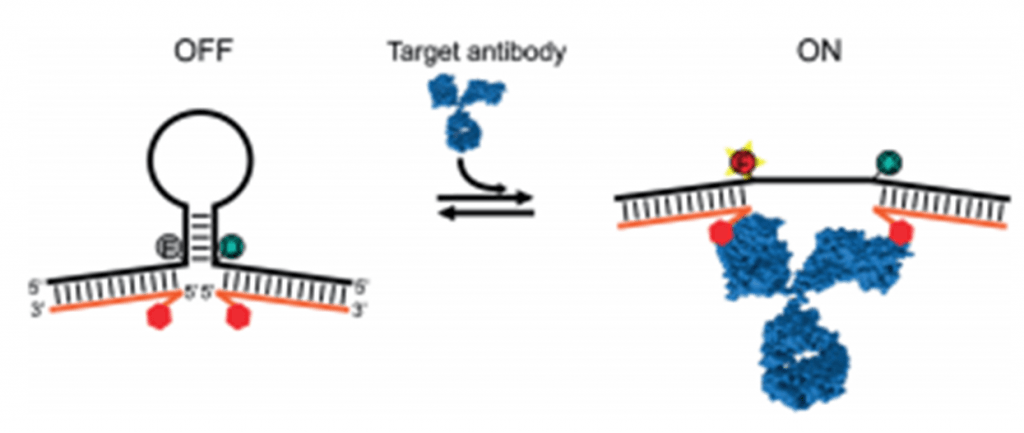DNA Nanomachines to Detect Any Antibody

A team of researchers from the Universities of Rome and Montreal have developed a DNA nanomachine customizable to detect any antibody. The nanodevice will allow cheap detection of antibodies at point-of-care settings and thus ease diagnosis of infectious or auto-immune diseases. The study was published in the journal Angewandte Communications.
Biomarkers are proteins that, when present in the blood or cells, indicate the existence of a disease. Current detection methods are based on extensive use of reagents and long multi-step protocols that end up being costly. Moreover, they are semiquantitative at best. These limitations result in poor or delayed diagnosis and treatment. Francesco Ricci and his colleagues considered finding an alternative to current methods by mimicking nature. Biomolecular receptors are simple and highly selective: they can detect thousands of target molecules in an environment as crowded as the cell. The authors decided to utilize a conformational switch mechanism in their design, which has already been used to construct molecular beacons. These are DNA nanoswitches that, upon binding to a nucleotide target, change their conformation, separating in the process a fluorophore and quencher – that are otherwise close together- and thus increasing fluorescence. Dr. Ricci´s team modified this design to transform the beacon into a protein sensor. The typical DNA loop with fluorophore and quencher (grey and blue circles in the picture) at each strand of the small stem of the structure was combined with DNA strands (long, black lines) on each side of the stem. These DNA sequences can be recognized by a complementary sequence (red strands) to which any desired antigen can be bound (red hexagons). Binding of a bivalent molecule (an antibody) to the antigens forces the molecule to switch its conformation, bringing apart the fluorophore and quencher.
A platform for the detection of multiple diseases
The most remarkable aspect of the nanomachines is its versatility; the interchangeable DNA strands can be bound to any antigen, truly transforming the molecule into a platform for detection of any antibody. Biomarker detection and disease diagnosis is easier, quicker, and more affordable. One reaction is completed in five minutes, even in blood serum, and costs $0.15. The team is currently working on reading the detection in cellphones, making it available to more people, and they plan to involve diagnosis companies.
Source: University of Montreal

